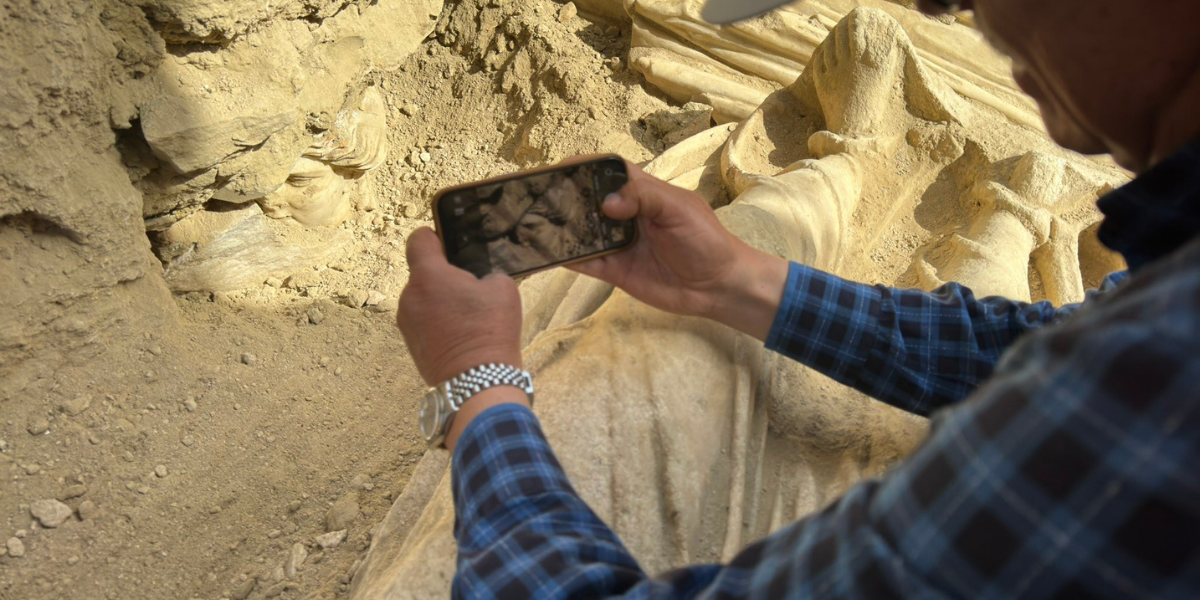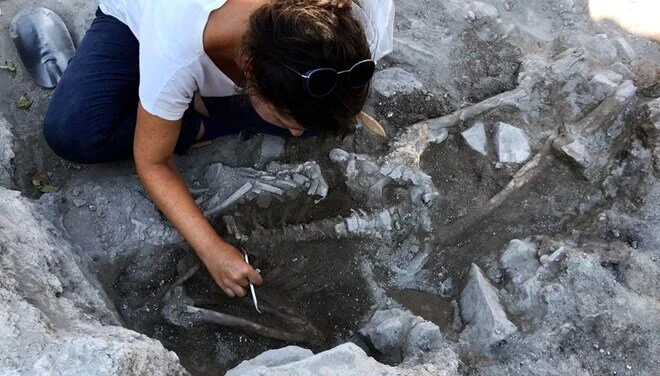During the excavations in the ancient city of Laodikeia in Denizli province, the statue head of Hygieia, the goddess of health and cleanliness, the daughter of Asclepius, the god of medicine in Greek and Roman mythology, was unearthed.
The excavations in the ancient city of Laodikeia are under the supervision of Pamukkale University Archaeology Department lecturer Prof. Dr. Celal Şimşek continues under the presidency.
The ancient city of Laodikeia, where the statue head of the goddess Hygieia is located, is a historical city dating back to the 3rd century BC, located 6 km north of Denizli. It was founded in a very favorable geographical location south of the Lykos River.
The name of the city is mostly mentioned as “Laodikeia on the shore of Lykos” in ancient sources.
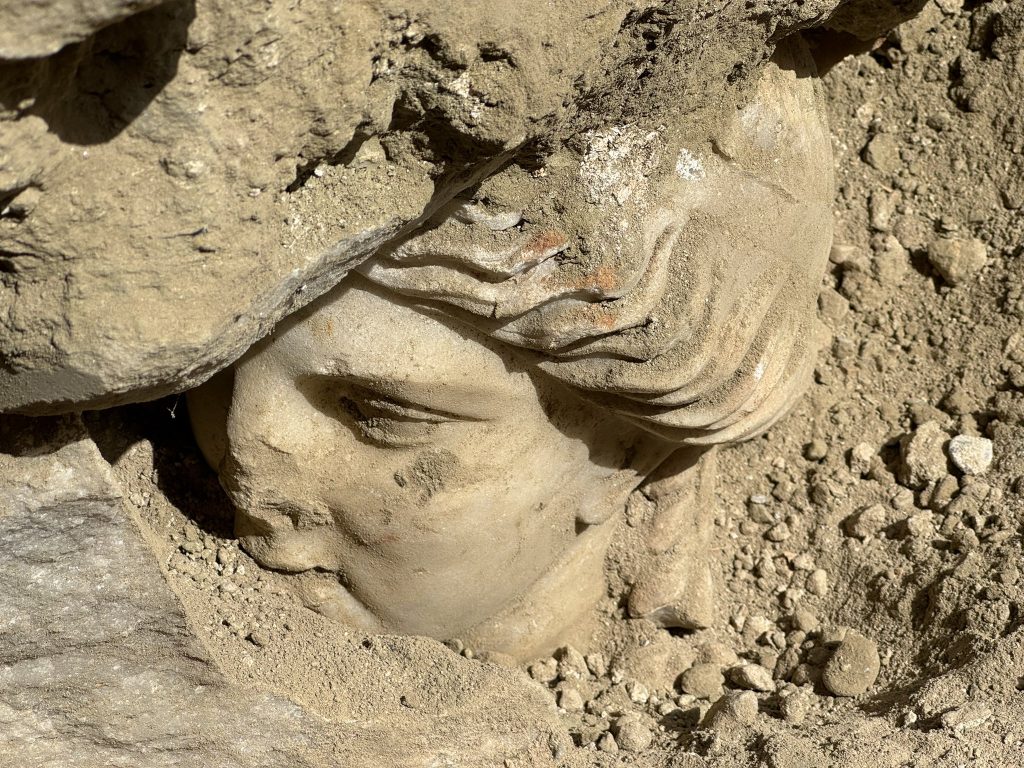
The name of the city comes from Laodike, the wife of Antiochus II, the Seleucid king. Founded between 261-263 BC, Laodikeia quickly became an important trade center. The city became very rich due to its location on the silk road and the Lykos River being suitable for water transportation.
Celal Şimşek shared the unearthing of the statue head after 2100 years on his social media X account with the note “The meeting of the Sun and Hygieia with us in Laodicea after 2,100 years”.
Celal Şimşek said the following about the artifact.
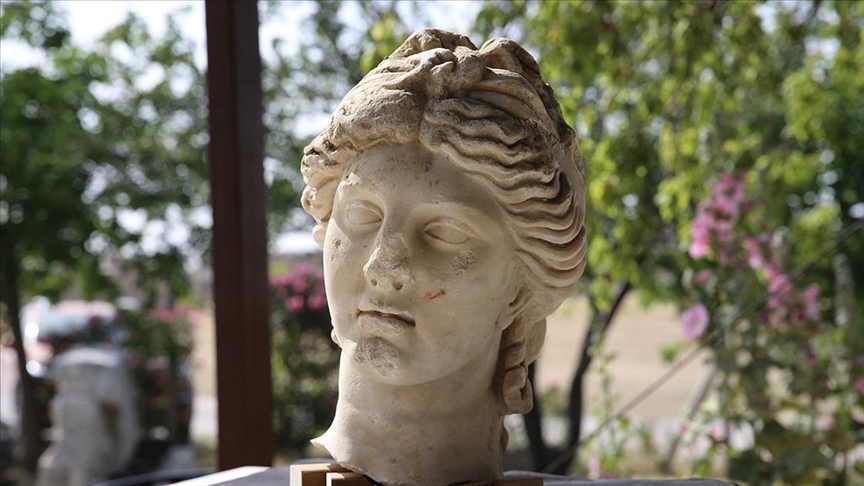
“It is a head that we think is a bit larger than normal sizes. It is made of white marble with fine pores. We already knew from ancient sources how important medicine was in this region and that there were especially important doctors related to health. I hope that the lower part of the statue will be found in the near future. Finding the statue head of Hygieia, the goddess of health, in support of the medical activities here really excited us as an excavation team.
Şimşek said that work is continuing to find the remaining part of the statue.
Hygieia is known as the daughter of Asclepius, the goddess of health and cleanliness in Greek mythology. Hygieia fulfills her father’s mythological healing mission with the theme of protection.
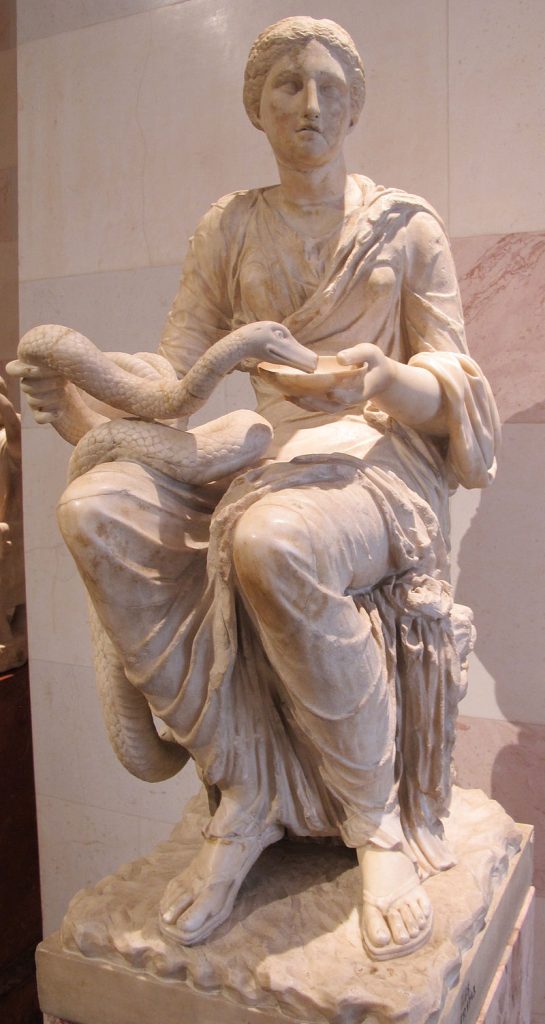
Hygieia’s name derives from the Greek word “hygieia” meaning “healthy”. The etymological origin of the word hygiene is also linked to Hygieia and includes the meanings of “health” and “cleanliness”.
Hygieia is often depicted with a snake or a bowl. The snake symbolizes healing and regeneration, while the bowl represents cleanliness and hygiene.
Hygieia is considered a symbol of modern medicine and pharmacy.

